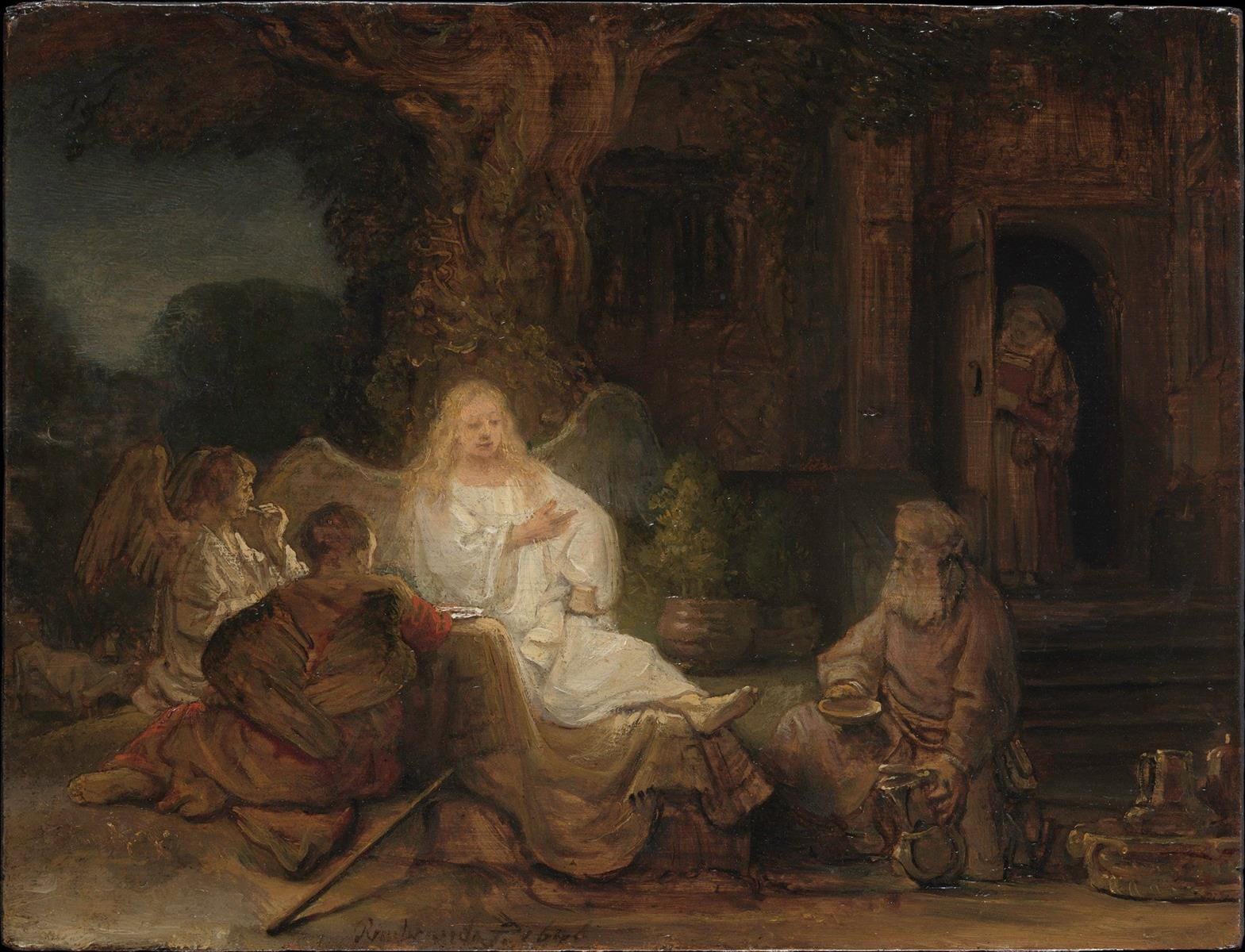Abraham and the Art of Judgment

This is the first post in my new Substack! Read and subscribe here: https://reasonablejudaism.substack.com/p/abraham-and-the-art-of-judgment
In an age of instant outrage, it helps to remember that God paused before destroying Sodom. Before the city burns, He asks: “Shall I hide from Abraham what I am about to do?” (Genesis 18:17). That question – and Abraham’s response – remain a timeless model of moral judgment.
But why did God pause? The Torah continues:
Abraham shall surely become a great and mighty nation, and all the nations of the earth shall be blessed through him. For I have chosen him, that he may command his children and his household after him to keep the way of the Lord, to do righteousness and justice. (Genesis 18:18–19)
The verses link God’s pause to Abraham’s mission, but the connection is not immediately clear.
Rashi, drawing on one view in the Midrash, explains that because God loves Abraham – “for I have known him” – He could not keep His plans hidden. For Rashi, tzedaka umishpat are not the result of that bond but its purpose: Abraham was chosen to model and transmit a moral tradition. On this reading, Abraham’s commitment to justice explains his destiny, though not why God shares His intentions now.
Midrash Tanchuma (Vayera 8) offers a different perspective:
When the Sodomites sinned, God revealed the matter to Abraham so he would argue on their behalf, as it says, “Shall I hide from Abraham?” Immediately Abraham began to plead for them, saying, “Will You sweep away the righteous with the wicked?”
Here, God’s revelation is not only an expression of love but also a means of teaching him.
That reading is reinforced by Abraham’s own words. When he speaks up, his language mirrors God’s: “Will You sweep away the righteous with the wicked?” (18:23). “Shall not the Judge of all the earth do justice?” (18:25). The parallel is striking and the implication remarkably clear: God reveals His plan not merely because Abraham deserves to know, but so he can learn and practice tzedaka umishpat.
What follows is even more remarkable. God seems ready to reveal His decision, but He never actually does. He asks, “Shall I hide from Abraham what I am about to do?” – but never says, “Therefore I will tell him.” Instead, God descends to see if the Sodomites’ cruelty is as great as reported. The angels proceed to Sodom, and Abraham remains standing before the Lord. God never announces His verdict. Instead, He reveals not the outcome but the process: investigation before judgment, especially when the stakes are life and death.
This is Abraham’s real education. God models that true justice resists haste and moral grandstanding. And Abraham learns. He questions and pleads – not to defy God but to reason, to weigh, to try and persuade.
Tzedaka umishpat is not a slogan or a reflexive affirmation of our prior convictions. It is the slow formation of a moral conscience that listens, questions, and discerns. It is what Chazal meant when they taught that a court may not issue a capital sentence until it has slept on the judgment, and what they intended when they urged judges to be judicious – there’s a reason those two words are related – before issuing a verdict. Precisely when the world seems to be collapsing, when evil feels overwhelming and despair tempting, God shows Abraham the way of the Lord.
Let me be clear: this is not about making everything needlessly complex. Abraham understands his charge. When God tells him to go to Canaan, he goes. When He commands him to offer Isaac, he obeys. But when God signals that He wants him to think, Abraham does that too. He argues until he exhausts his reasoning – and then he accepts God’s decision and moves on. His greatness lies not in endless questioning but in knowing when God demands obedience and when He invites discernment.
That wisdom – a word we don’t hear nearly enough today – is precisely what we are at risk of losing in this age of outrage. We live in a culture of instant judgment and moral certitude. Justice has become performative – fast, loud, tribal, unexamined. But the Torah models something else. God “goes down to see” – to verify before judging. Abraham observes and imitates. Real justice, of any political flavor, begins with patience, with taking the moral weight of life and death seriously, and with ensuring that the outcry matches the facts. Action must follow, but first things first. That, the Torah says, is what it means to “keep the way of the Lord, to do righteousness and justice.”
Centuries later, building on Aristotle, Maimonides made that same phrase – derekh Hashem, the “way of the Lord” – the foundation of his ethical system. To walk in God’s ways, he taught, is to imitate divine balance: to find the path between extremes. The Golden Mean is the discipline of moral equilibrium, modeled after God’s deliberation and Abraham’s apprenticeship.
That’s what this project is about. Each week, I’ll share a reflection that tries to do what God taught Abraham to do: to slow down, think carefully, and seek moral clarity without rushing to judgment. To resist the temptation to assume I know the answer in advance, and instead to engage in a good-faith effort at reading Torah and the moral map seriously. These essays will treat Torah as a living guide to the hard questions we face today – how to respond to conflict, fear, and moral complexity without losing our bearings.
In a world awash in turmoil, certitude, and performative piety, my hope is to model a different kind of Torah conversation – thoughtful, grounded, honest, genuinely open-minded, and alive to the moral challenges of our time. In short, this is a journey to recover a reasonable Judaism in an age of outrage.
God once called Abraham to walk in His path. That’s the same path I hope to walk with you: learning, questioning, and seeking to see the world a bit more as God asks us to see.
